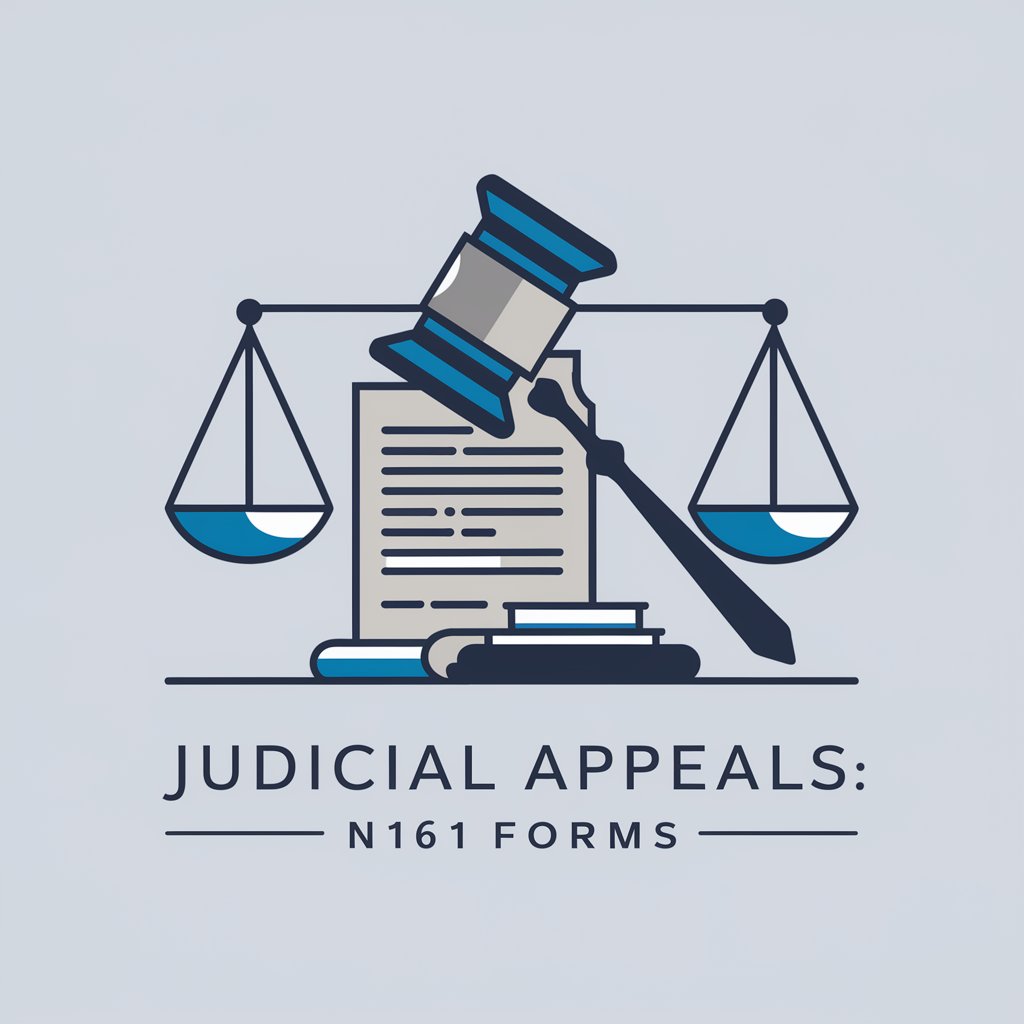
Judicial Reviews: Admin Court - admin court case insights
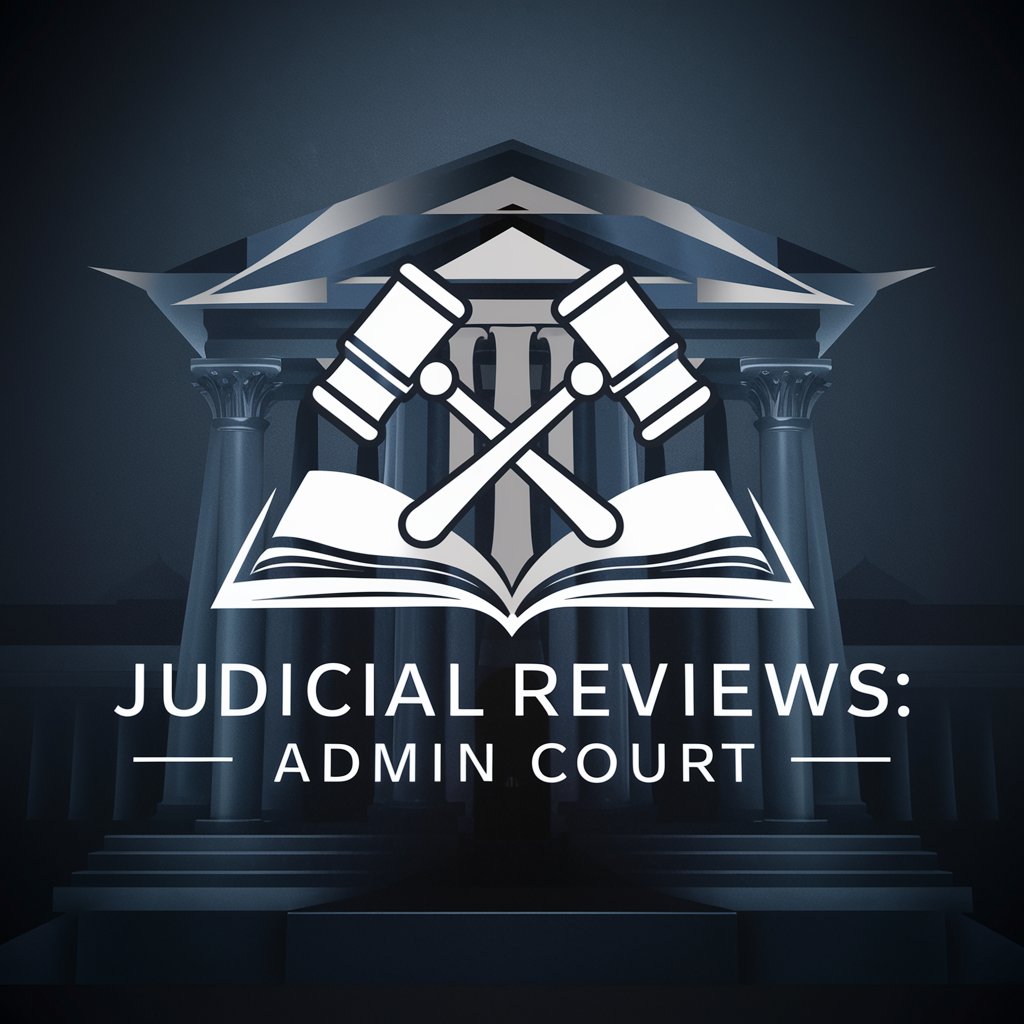
Welcome to Judicial Reviews: Admin Court, your guide to understanding judicial reviews in administrative law.
AI-powered legal case analysis
Explain the process of judicial review in administrative courts.
What are the key statutes governing judicial reviews in the administrative context?
Summarize a landmark case in judicial reviews of administrative decisions.
How does one initiate a judicial review in an administrative court?
Get Embed Code
Overview of Judicial Reviews: Admin Court
Judicial Reviews: Admin Court is a specialized informational tool designed to help users navigate the complexities of judicial review processes in administrative courts. The primary function of this tool is to demystify the procedures involved in challenging decisions made by public bodies, through legal means, in a court of law. A typical scenario illustrating its use could be a public sector worker or a private individual questioning the lawfulness of a governmental decision, policy, or action. The tool explains relevant statutes, case law, and legal principles that govern judicial reviews, enhancing the user's understanding of their rights and the legal remedies available. Powered by ChatGPT-4o。

Key Functions of Judicial Reviews: Admin Court
Explaining Legal Procedures
Example
For example, detailing the steps to initiate a judicial review, such as pre-action protocols, filing a claim form, and what to expect during a hearing.
Scenario
An NGO wants to challenge an environmental decision by the government that could have deleterious effects on a protected area. The tool provides a step-by-step guide on how the NGO can proceed legally.
Clarifying Case Law and Statutes
Example
This involves providing summaries of precedent-setting cases and explanations of how certain statutes apply to judicial review cases.
Scenario
A healthcare professional disputes a new healthcare policy that affects job duties. The tool elucidates relevant cases and statutes that might influence the outcome of a review.
Offering Insight into Possible Outcomes
Example
This feature predicts potential outcomes based on historical data from similar cases, helping users set realistic expectations.
Scenario
A business owner challenges a new tax regulation. Using this tool, the owner can understand possible legal outcomes, aiding in decision-making about whether to proceed with a challenge.
Target User Groups for Judicial Reviews: Admin Court
Legal Professionals
Lawyers, paralegals, and law students use this tool to stay informed about the latest developments in administrative law and to prepare for cases involving judicial review.
Public Sector Workers
Employees in government agencies or public sector organizations utilize the tool to understand how administrative decisions can be legally contested, particularly in scenarios where internal policies may affect their employment or the public.
Private Individuals and NGOs
This group uses the tool to challenge governmental actions that directly affect them or the causes they support, like environmental regulations, human rights issues, and public health policies.

Guidelines for Using Judicial Reviews: Admin Court
Start your free trial
Access the tool by visiting yeschat.ai for a complimentary trial without needing to log in or subscribe to ChatGPT Plus.
Identify your need
Define the specific aspect of administrative law or judicial review you need help with, such as understanding procedural steps or analyzing case law.
Explore case studies
Utilize the tool to review past judicial review cases to gain insights into how similar situations have been handled in the administrative courts.
Use interactive features
Engage with the tool's interactive features, like Q&A and case analysis, to deepen your understanding of judicial review processes.
Review results
Evaluate the information and explanations provided to ensure they meet your specific needs for knowledge and application in real-world scenarios.
Try other advanced and practical GPTs
Course Creator
Craft engaging courses with AI ease.

Course Sniper
Explore Learning with AI-Powered Insights

Course Finder
Empowering careers with AI-driven guidance

Course Architect
Educate with AI, Elevate Learning

Course Pathfinder
Navigating Your Academic Journey with AI

Translate Pro
Accurate Translation, Culturally Tuned

JC 東方
Explore Asian Cultures with AI

System Analyst
Empowering your system's potential with AI-driven analysis.
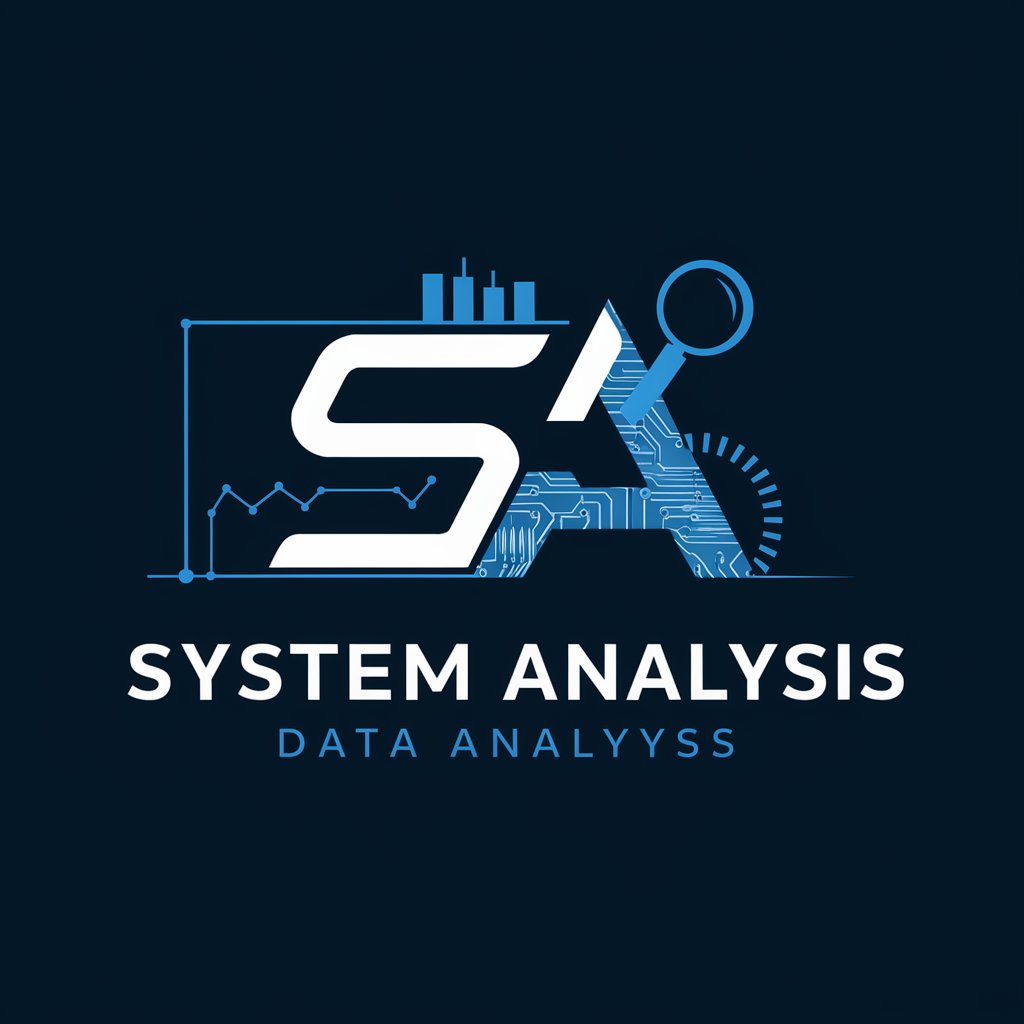
System Synthesizer
Harness AI to Master Decision Dynamics
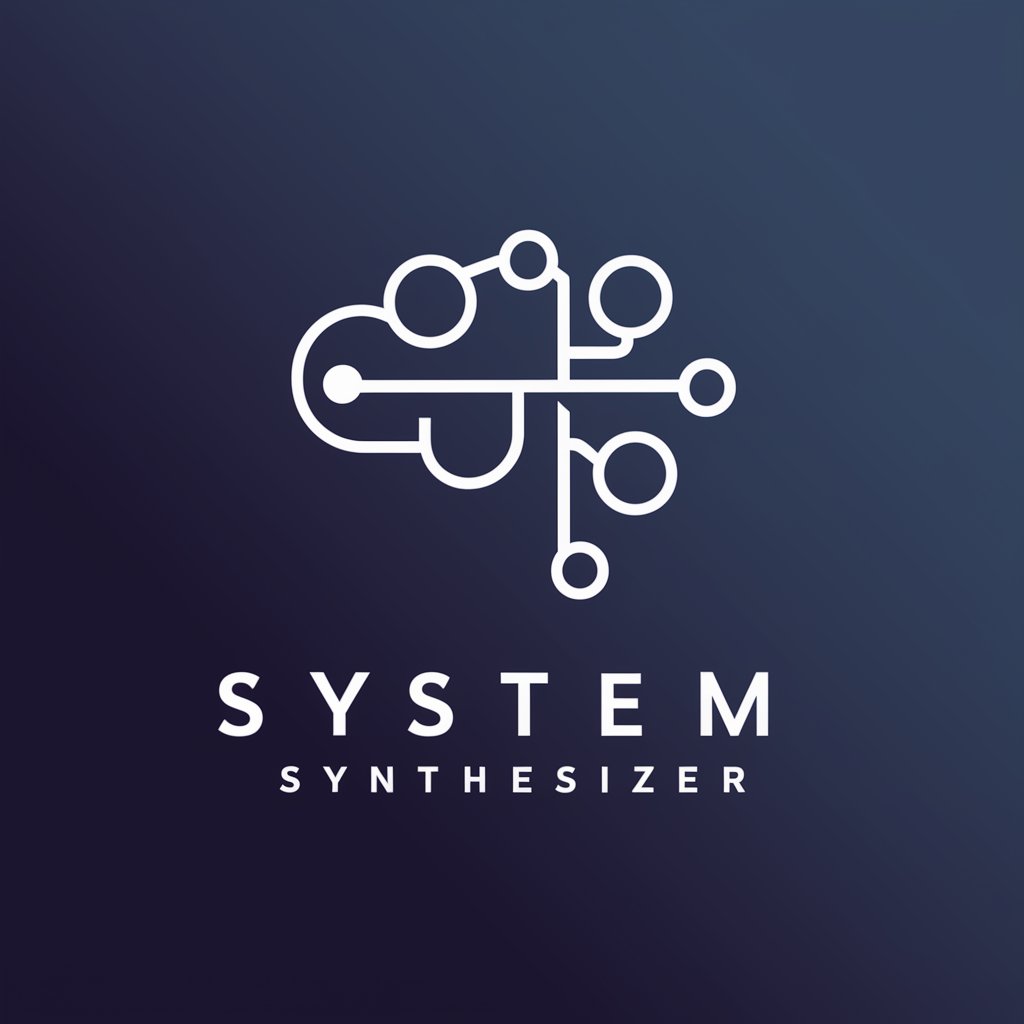
System Sketcher
Draw smarter, not harder.

System Sleuth
Empowering Ethical Hacking with AI
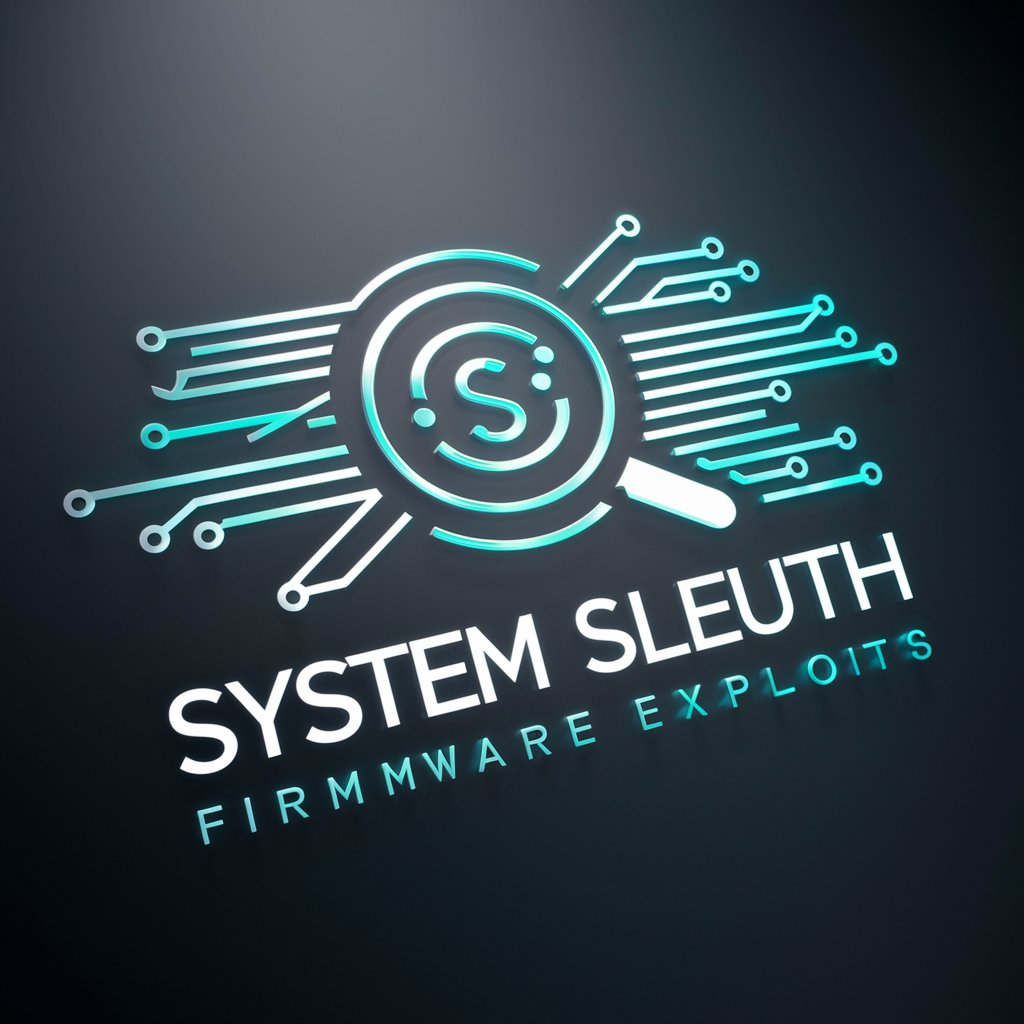
System Sage
Demystifying Distributed Systems with AI
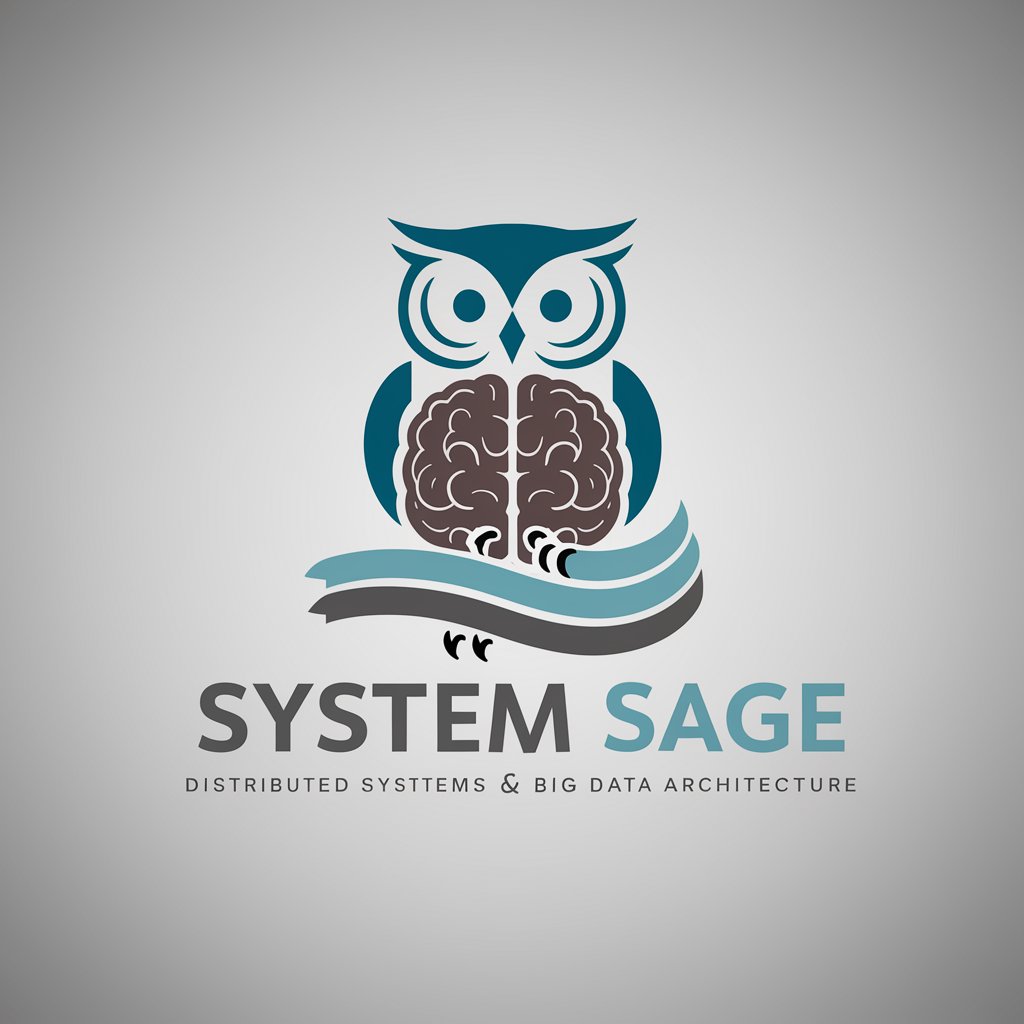
Frequently Asked Questions about Judicial Reviews: Admin Court
What is a judicial review in administrative law?
A judicial review in administrative law involves the process by which a court reviews an action or decision made by a public body to ensure it was lawful, fair, and reasonable.
How can this tool help me prepare for a judicial review?
This tool assists users by providing detailed insights into procedural rules, relevant case law, and precedents that are critical for preparing legal arguments or understanding judicial reasoning.
Can I find examples of successful judicial reviews here?
Yes, this tool provides access to a variety of case studies and summaries of judicial reviews that have set important precedents in administrative law.
What should I do if I disagree with an administrative decision?
If you disagree with an administrative decision, you may use this tool to understand the grounds for a judicial review and the process to challenge the decision legally.
How does this tool update with new legal developments?
The tool regularly updates its database with the latest cases, legal amendments, and scholarly articles to ensure users have access to current and comprehensive legal information.





